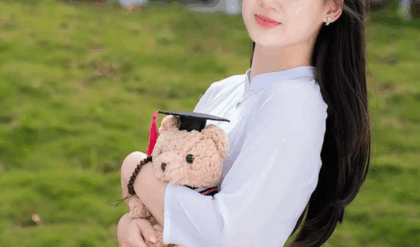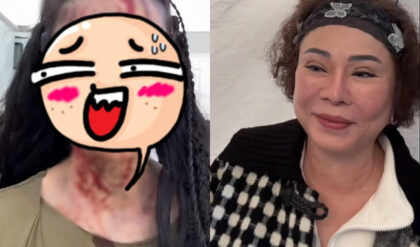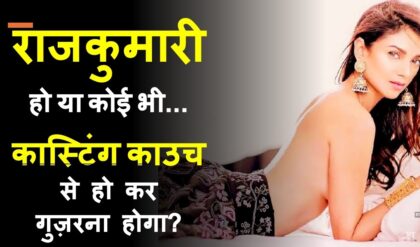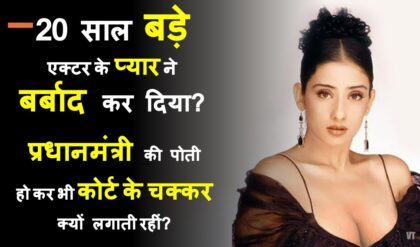In recent interviews, actress Juhi Parmar and actor Rajesh Kumar have shared their thoughts on significant topics related to women’s rights, the evolution of the entertainment industry from the 1990s to today, and their experiences on the popular web series “Yeh Meri Family.” Their insights provide a unique perspective on the changing landscape of Indian society and the entertainment industry, highlighting both progress and challenges.
Juhi Parmar, a well-known face in Indian television, has been a vocal advocate for women’s rights and empowerment. In her discussions, she emphasizes the importance of recognizing and addressing the issues that women face in society. Juhi believes that while significant strides have been made in recent years toward gender equality, there is still much work to be done. She argues that awareness and education are crucial in promoting women’s rights, particularly in communities where traditional norms often hinder progress.
Juhi reflects on her own journey as a woman in the entertainment industry. Having started her career at a young age, she has faced various challenges, including societal expectations and the pressures of maintaining a public persona. Her experiences have fueled her passion for advocating women’s rights. She often speaks about the need for women to support one another, encouraging solidarity and empowerment among women in all fields. Juhi’s commitment to raising awareness about issues such as domestic violence, workplace harassment, and gender discrimination showcases her dedication to creating a more equitable society.
In her discussions, Juhi highlights the importance of representation in media. She believes that having strong female characters in television and film can inspire younger generations of women to pursue their dreams and challenge societal norms. Juhi’s work in television, particularly in shows that depict strong, independent female leads, serves as an example of how the entertainment industry can play a role in promoting positive change. By portraying women in diverse and empowering roles, she hopes to contribute to a narrative that uplifts and inspires.
On the other hand, Rajesh Kumar, known for his roles in popular television shows, reflects on the stark differences between the entertainment industry of the 1990s and today. He recalls the era when television was primarily dominated by family dramas and comedy shows, with a limited number of channels catering to audiences. In contrast, today’s entertainment landscape is characterized by an explosion of content, thanks to the rise of digital platforms and the accessibility of diverse programming. Rajesh notes that this shift has opened up new avenues for actors and creators, allowing for a wider range of stories to be told.
Rajesh also emphasizes how the audience’s preferences have evolved over the years. In the 90s, shows often focused on traditional family values and melodrama. Today, audiences seek content that is relatable, relevant, and reflective of contemporary issues. This change has led to a demand for more nuanced storytelling that addresses social issues, including mental health, relationships, and women’s rights. Rajesh appreciates this shift, as it allows actors to explore a broader range of characters and narratives that resonate with the current generation.
The actor’s experience on “Yeh Meri Family,” a web series that captures the essence of family life in the late 1990s, further illustrates the transformation in storytelling. The show is set in a time when life was simpler, and the dynamics of family relationships were central to the narrative. Rajesh notes that the series successfully evokes nostalgia while simultaneously addressing the challenges faced by families in a rapidly changing world. The blend of humor and heartfelt moments makes it relatable to audiences of all ages.
Rajesh’s portrayal of a father in “Yeh Meri Family” reflects the changing roles of men in society. He discusses how the representation of fathers in television has evolved from being authoritative figures to more nurturing and emotionally available characters. This shift aligns with the broader conversation about gender roles and the importance of fathers as active participants in their children’s lives. By showcasing a modern father who is supportive and caring, Rajesh hopes to contribute to the redefinition of masculinity in the context of family dynamics.
Both Juhi and Rajesh acknowledge the impact of social media on the entertainment industry and society as a whole. Juhi points out that platforms like Twitter and Instagram have given women a voice, allowing them to share their experiences and advocate for their rights. Social media has become a powerful tool for raising awareness about issues such as gender-based violence and discrimination, fostering a sense of community among women who share similar struggles.
Rajesh adds that social media has also changed the way audiences interact with content. Viewers can now engage directly with actors and creators, providing feedback and shaping the narrative landscape. This interactivity has led to a more dynamic relationship between artists and their audiences, allowing for greater accountability and responsiveness to societal issues. Rajesh appreciates this newfound connection, as it encourages actors to be more attuned to the concerns and aspirations of their fans.
As both Juhi and Rajesh reflect on the past and present, they express optimism about the future of women’s rights and the entertainment industry. Juhi believes that continued advocacy and awareness will lead to meaningful change, while Rajesh is excited about the opportunities that lie ahead
Watch video:





